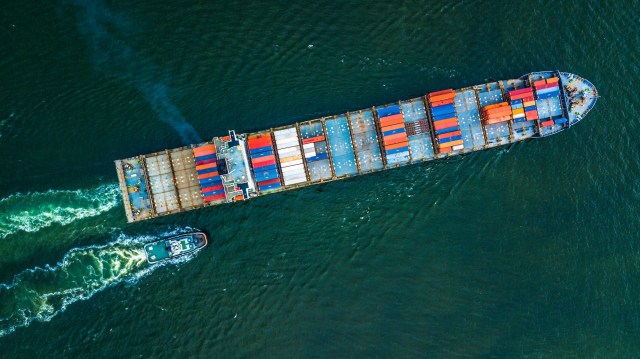Exploring Fair Trade Products from Different Countries: A Global Perspective
In today’s interconnected world, consumers are becoming increasingly aware of the impact their purchasing decisions can have on people and the planet. This has led to a rise in demand for fair trade products from around the globe. Fair trade is a movement that aims to promote better trading conditions and sustainability for producers in developing countries. In this article, we will explore some of the fascinating fair trade products available from different countries, giving you a global perspective on ethical consumerism.
Coffee: The Brew that Empowers Communities
Coffee is one of the most popular fair trade products globally, with its origin spanning across various countries such as Ethiopia, Colombia, and Costa Rica. Fair trade coffee ensures that farmers receive a fair price for their beans, enabling them to invest in their communities and improve their quality of life. By choosing fair trade coffee, consumers are not only enjoying a delicious cup of joe but also supporting sustainable farming practices and empowering coffee-growing communities.

In Ethiopia, where coffee has been cultivated for centuries, fair trade cooperatives have flourished. These cooperatives provide small-scale farmers with access to international markets and offer training programs on organic farming techniques. By purchasing Ethiopian fair trade coffee, consumers contribute to preserving traditional cultivation methods while supporting local communities.
Colombia is renowned for its high-quality Arabica coffee beans grown in the lush Andes Mountains. Fair trade practices ensure that Colombian coffee farmers receive a stable income while promoting sustainable farming practices that protect biodiversity and natural resources. By opting for fair trade Colombian coffee, consumers can enjoy a rich and flavorful brew while making a positive impact on both people and the environment.
Costa Rica’s volcanic soil provides ideal conditions for growing specialty coffees. Through fair trade partnerships, Costa Rican coffee farmers gain access to resources such as credit facilities and technical assistance to improve their production methods further. By choosing fair trade Costa Rican coffee, consumers can savor the unique flavors of this Central American country while supporting sustainable agriculture and social development.
Chocolate: Sweet Indulgence with a Social Conscience
Chocolate lovers rejoice. Fair trade chocolate allows you to indulge in your favorite treat while ensuring that cocoa farmers receive fair wages and are not exploited. Countries like Ghana, Ecuador, and the Dominican Republic are known for their fair trade cocoa production.
Ghana is one of the largest producers of cocoa globally, and fair trade practices have made a significant impact on the lives of Ghanaian cocoa farmers. Fair trade cooperatives provide training on sustainable farming practices, access to credit facilities, and community development projects. By choosing fair trade chocolate from Ghana, consumers support the empowerment of small-scale farmers and contribute to poverty alleviation in rural communities.
Ecuador is famous for its high-quality cacao beans, which are transformed into exquisite chocolate bars. Fair trade partnerships ensure that Ecuadorian cocoa farmers receive fair prices for their beans while promoting environmental sustainability through organic farming methods. By selecting fair trade chocolate from Ecuador, consumers can enjoy the rich flavors of this South American country while supporting ethical sourcing practices.
The Dominican Republic is another prominent player in the fair trade chocolate industry. Through fair trade initiatives, Dominican cocoa farmers have been able to invest in education programs for their children and improve healthcare facilities within their communities. By opting for fair trade chocolate from the Dominican Republic, consumers can satisfy their sweet tooth guilt-free while making a positive impact on local communities.
Handmade Crafts: Supporting Artisans Worldwide
Fair trade extends beyond consumable products; it also encompasses handmade crafts produced by talented artisans around the world. From intricate textiles to beautiful pottery, there is a wide range of fair trade crafts available from countries such as India, Kenya, and Peru.
India has a rich tradition of handicrafts that reflect its diverse cultural heritage. Through fair trade partnerships, Indian artisans have gained access to international markets, allowing them to preserve traditional craftsmanship while earning a fair income. By purchasing fair trade textiles, jewelry, or home decor items from India, consumers can adorn their lives with unique pieces while supporting the livelihoods of artisans.
Kenya is renowned for its intricate beadwork and wood carvings. Fair trade organizations in Kenya provide training and resources to local artisans, enabling them to create high-quality products that appeal to global markets. By choosing fair trade crafts from Kenya, consumers not only acquire beautiful handmade items but also contribute to poverty reduction and women’s empowerment initiatives.
Peruvian artisans are known for their vibrant textiles and ceramics that showcase the country’s rich cultural heritage. Fair trade partnerships have allowed Peruvian artisans to expand their businesses and gain recognition for their craftsmanship on an international scale. By purchasing fair trade Peruvian crafts, consumers support the preservation of ancient traditions while promoting sustainable economic development in rural communities.
Tea: A Soothing Sip with Social Impact
Tea enthusiasts can also make a difference through their choice of fair trade teas. From the rolling hills of Sri Lanka to the plantations in India and Kenya, fair trade practices ensure that tea workers receive fair wages and better working conditions.
Sri Lanka, formerly known as C
This text was generated using a large language model, and select text has been reviewed and moderated for purposes such as readability.


